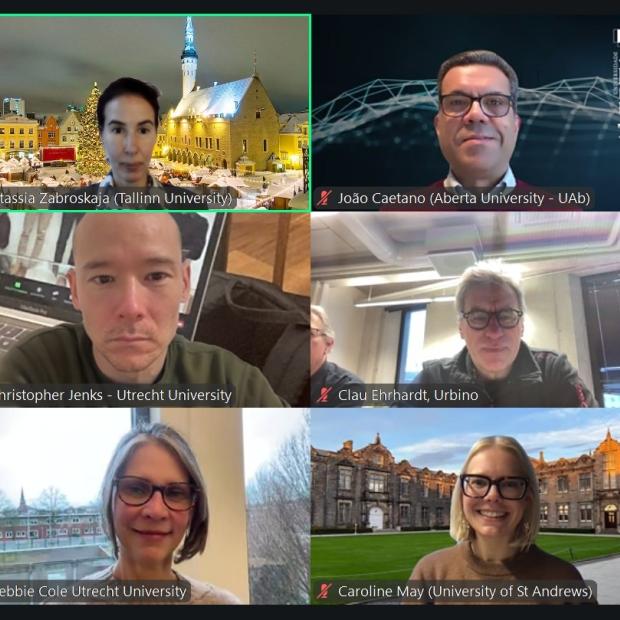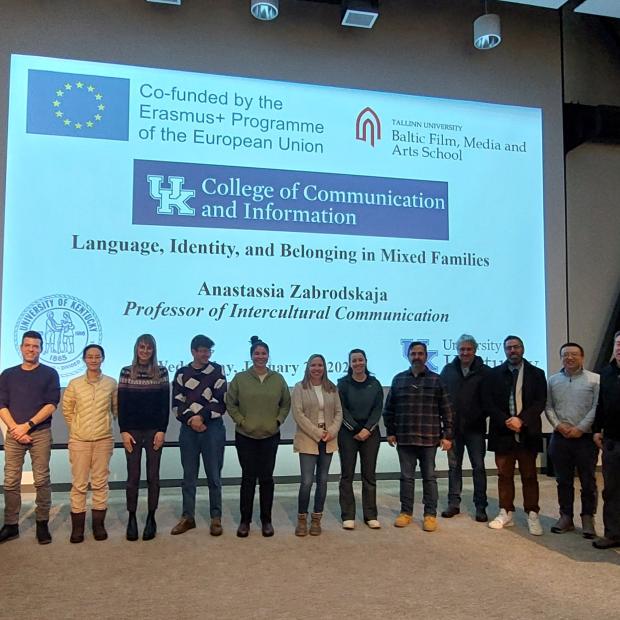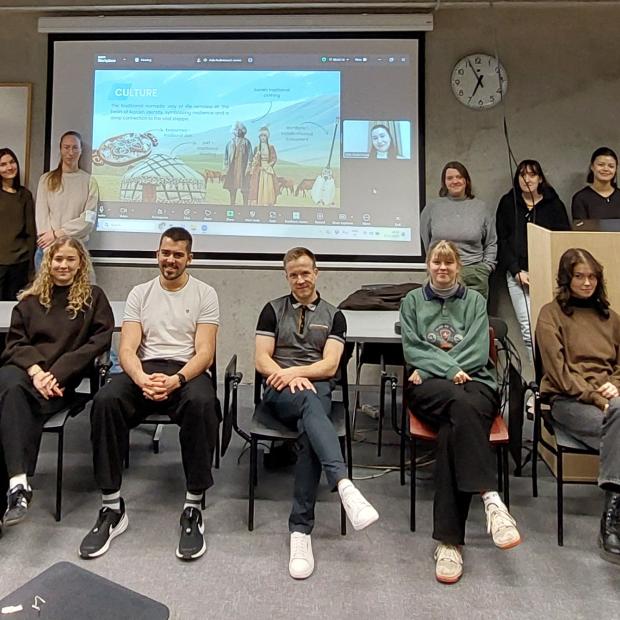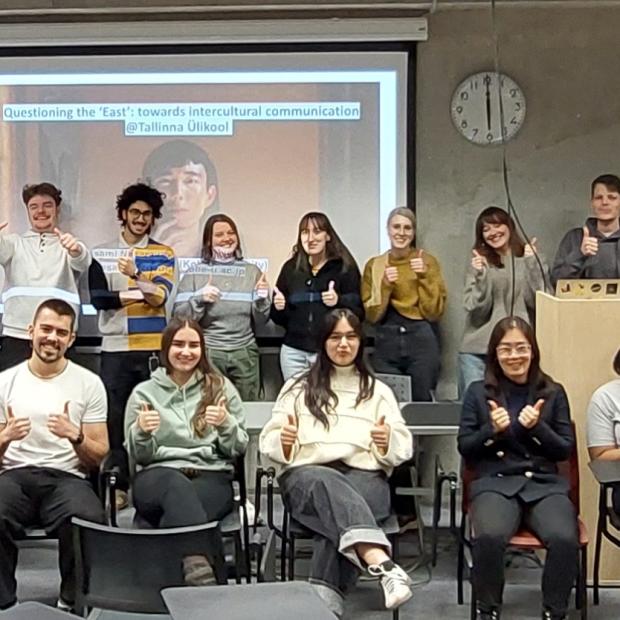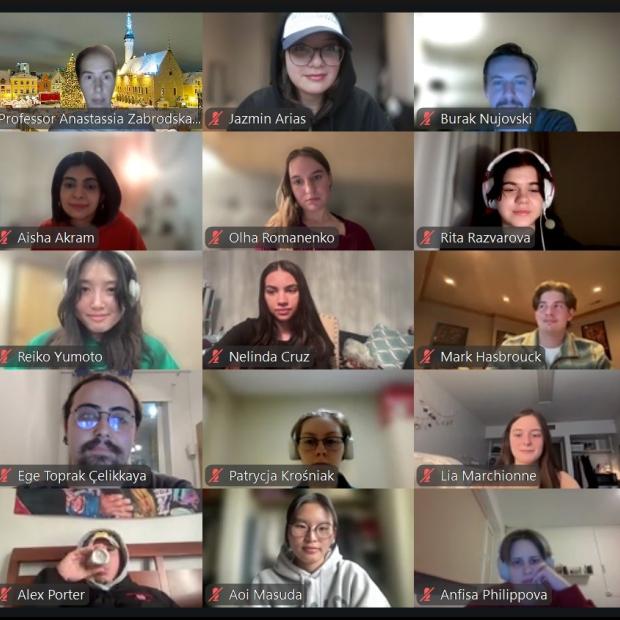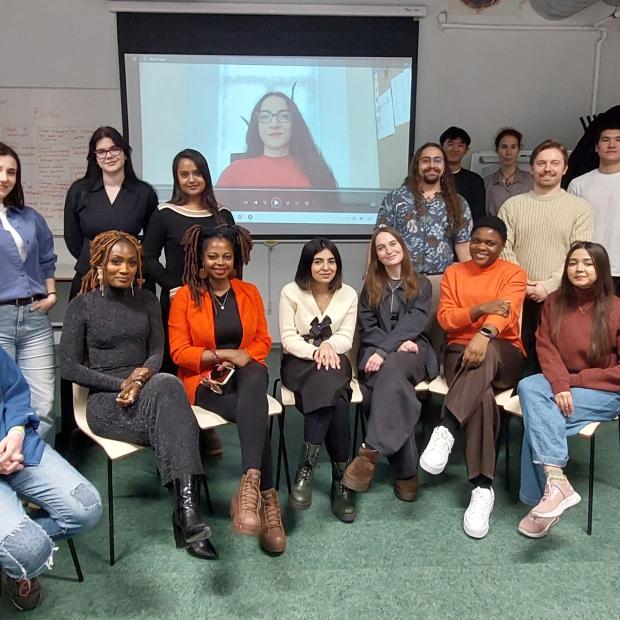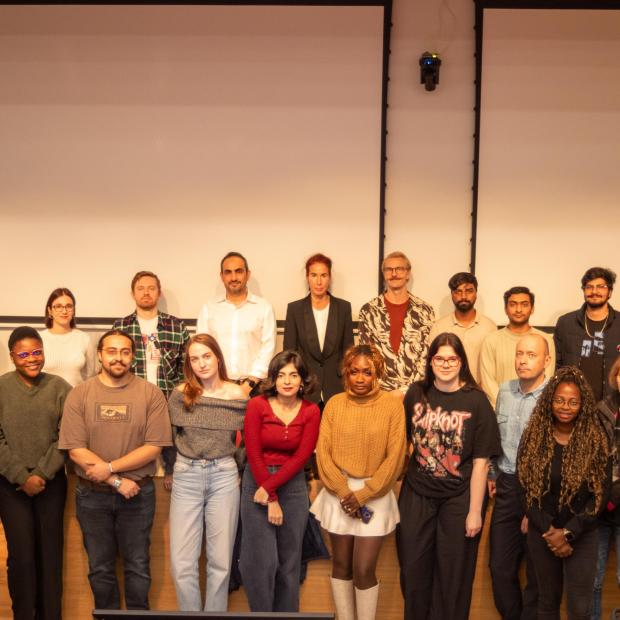Professor Anastassia Zabrodskaja’s ERASMUS+ Lectures in Morocco
Professor Anastassia Zabrodskaja delivered lectures on intercultural communication and multilingualism at Sidi Mohammed Ben Abdellah University, Fez, Morocco.

Under the ERASMUS+ program, Professor Anastassia Zabrodskaja visited Sidi Mohammed Ben Abdellah University in Fez, Morocco, where she delivered a series of inspirational lectures from December 4 to December 9, 2024. Hosted by the Faculty of Letters and Human Sciences, her visit marked a significant exchange of ideas in the fields of intercultural communication and sociolinguistics.
During her eight hours of teaching, Professor Zabrodskaja explored topics such as "Superdiversity, Multilingualism, and Intercultural Communication in Estonia," providing an in-depth analysis of how linguistic diversity shapes social and cultural dynamics in Estonia. Her sessions critically examined the Estonian linguistic landscape, addressing the interplay between multilingualism and societal structures, as well as the ways language use reflects and influences public spaces and cultural identities.
A particular focus was given to the complexities of language policies, ideologies, and beliefs within Russian-Estonian families, shedding light on how language acts as a bridge—or sometimes a barrier—within multilingual households. Her lectures provided an analytical lens to understand the negotiation of language practices in these families, highlighting both historical and contemporary sociopolitical influences.
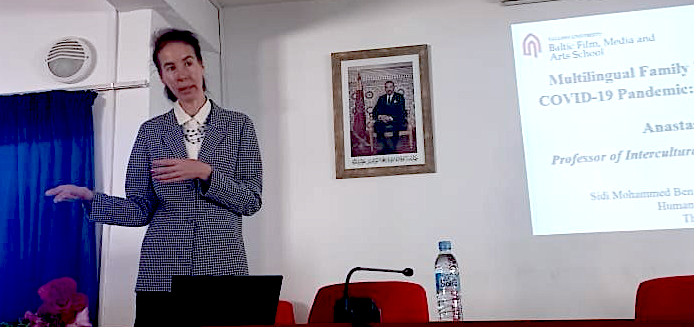
Professor Zabrodskaja's lectures were both enlightening and thought-provoking, engaging the audience in dynamic discussions that seamlessly connected theoretical perspectives with real-world applications. Both students and faculty actively participated, fostering a vibrant intellectual atmosphere.
The sessions encouraged students to share their perspectives and pose insightful questions about the challenges and opportunities associated with multilingualism in their own contexts. Topics such as the reflection of linguistic diversity in public spaces and the evolving nature of family language policies sparked thought-provoking debates, with participants drawing parallels between Estonia’s experiences and Morocco’s rich linguistic landscape.
Interactive segments of the lectures involved students critically analyzing case studies, participating in small group discussions, and collaboratively examining how language ideologies shape intercultural communication. Many attendees expressed curiosity about the comparative methodologies used in Professor Zabrodskaja’s research, particularly her work on Russian-Estonian families.
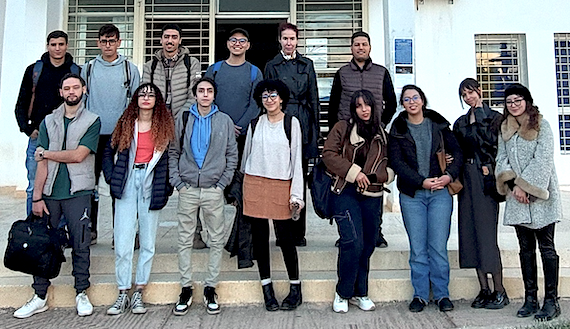
These exchanges not only deepened students’ understanding of intercultural communication and sociolinguistic concepts but also provided them with practical insights into addressing linguistic challenges in their own multilingual and multicultural environments. The lively participation underscored the success of the event as a platform for fostering cross-cultural dialogue and academic collaboration.
A highlight of her visit was a public lecture in the university library titled "Multilingual Family Language Policies during the COVID-19 Pandemic: Insights from Diverse Contexts." This session provided valuable perspectives on how families managed language use and cultural dynamics during the global crisis.
The local academic community warmly embraced the Erasmus+ visit. The main host, Dr. Omar Moumni, a Professor of English and Cultural Studies, praised the Erasmus+ program for fostering international collaboration and enhancing understanding of linguistic and cultural diversity. In June of this year, Professor Moumni taught at Tallinn University (see here). Such initiatives underscore the importance of global academic partnerships in addressing pressing sociolinguistic and cultural challenges in today's interconnected world. Another significant outcome was that, following the meetings with students, several expressed interest in attending Tallinn University during the 2025-2026 academic year. The Erasmus+ program will provide support for the study semester of three students.
The text is authored by Dr. Anastassia Zabrodskaja, who is a Professor of Intercultural Communication, the Head of the Master’s Program in Communication Management at Tallinn University Baltic Film, Media and Arts School, and the Executive Director of the European Masters in Intercultural Communication (EMICC) teaching and research network.

